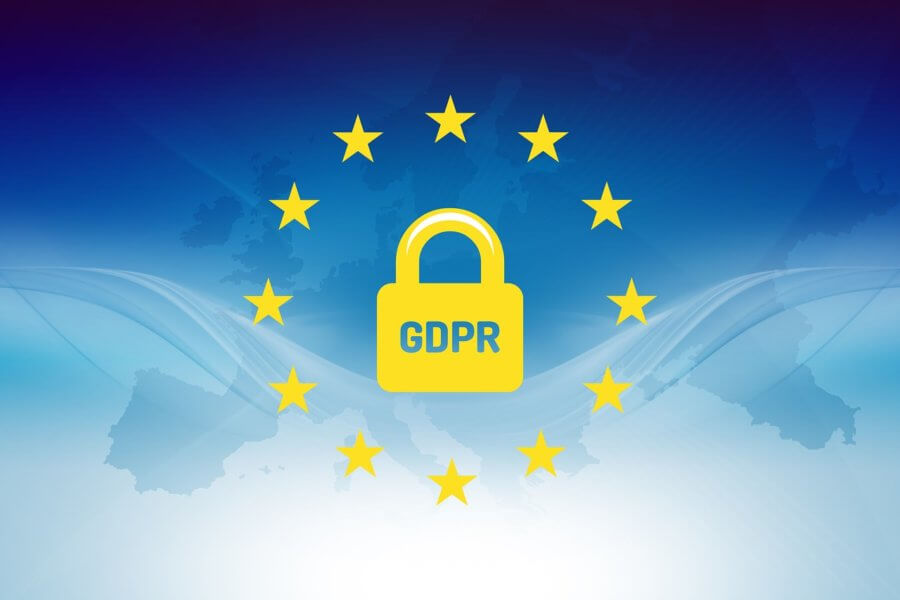GDPR impact on digital health startups in Europe
The General Data Protection Regulation (GDPR) is a European Union data protection law that ensures companies become accountable for the large data they collect, store and process for European users. This law ensures that technology companies are liable for their users’ information and the need to consult them in case of data leakage or if they share their users’ data with other third parties. It aims to protect user information from unauthorised access.
Furthermore, companies with an online presence in Europe need to ensure that all their subscribers’ online data is protected. In case companies breach the integrity of this law, they are mandated to pay a penalty fee either 2% of company’s annual revenue or 10 Million Euro whichever is higher for low level breach and 4% of the company’s annual revenue or 20 Million or 20 Million Euro for high level breach.
Under the GDPR, users have the right to request certain personal information to be erased by the company if it is no longer needed or legitimate.
In this new regulation, users have more control over how their personal data is used by companies as they can easily access and track how this information is stored, shared and processed by the respective company.
Pre-existing data protection policy like the Data Protection Directive was based on major key features such as enforcing security, disclosure, accessibility and accountability measures for the company to follow. Unlike the Data Protection Directive, the GDPR ensures that companies implement new and advanced measures to protect the users’ data.
Moreover, it harmonizes the data privacy laws across all European nations in the EU. Most importantly, this new law mandates that companies should report any cases of data breach within 72 hours upon discovery to ensure that the authorities are involved.
This new data protection policy ensures that startup companies handling confidential data enforce advanced security measures and system that protects all their users’ data from unauthorised access and hacks.
Moreover, it ensures that these companies are held accountable in case of breach of privacy and using customer data for personal or corporate gain. Data companies are forced to abide by all the rules and regulations stipulated in this new policy.
The implementation of this new policy is perceived as the new dawn of data protection because users have absolute control of their personal information in terms of how it is used, processed and shared either to other individuals or corporations. It ensures that companies are held to a higher standard of ethical conduct when handling confidential information.
| Recommended for you | |
| Changing regulations can kill your digital health startup | |
| 5 Challenges in developing a digital health, mHealth app | |
| Live hacking of embedded medical devices |
How does GDPR affect your digital health startup?
Digital health companies will be required to employ workers in the data protection field to ensure internal compliance with the GDPR regulations and policies when dealing with sensitive information. These companies need to improve personal digital security for all their users’ information by creating secured online portals whereby clients can view how their data is shared, processed and stored by the organization.
The operational systems of digital health companies will be more transparent whereby organizational officers will inform their clients in case of a data breach. Furthermore, clients will independently approve each request issued by the company if it wants to share the user’s data with another third party.
Companies are required to constantly update their database systems whereby outdated data concerning their users should be deleted and completely erased by the company. Therefore, this will require the need to implement dynamic database systems which will impact an organization’s architectural design.
Thus, clients will have the right to request removing for the removal of certain aspects of their personal data from the database.
Protection by design mandates that all healthcare applications should be developed in accordance with the GDPR policies and regulations that protect the integrity of confidential data. Therefore, healthcare companies will have to re-adjust their respective app development processes, design patterns and database schemas to ensure that data privacy is the key motivating factor during the software development life cycle of the medical application.
These companies will have to develop applications focusing mainly on security whereby apps offer encryption, authentication features for users to access the application’s database.
Healthcare companies that are non-compliant with the GDPR policy will encounter investigative measures from data protection authorities who are mandated to issue substantial fines by this new law. The company will be subjected to strict scrutiny by the supervisory authority which has the legal right to issue administrative fines under Article 83 of the GDPR. GDPR will not force companies to divert their focus from inventing and developing medical products and services. However, this new law expects companies to create security-based systems that protect customer data and information.
The Right to be forgotten is a legal term used in the GDPR policy to ensure that users have the right to request data companies such as Google, Facebook, and Yahoo among others to remove their personal data that is no longer important.
This new regulation can adversely affect the growth of AI systems and application because they rely on large pools of the data to offer the best solution for users of the digital health services.
Minimising online data will affect the effectiveness of the AI systems because they can no longer detect a user’s online information and give an accurate analysis of their healthcare progress and lifestyle. Furthermore, it will affect the quality of AI-based apps in the medical industry.
Due to the intricate nature of protecting sensitive data, startup companies are being forced to hire data protection officers who have the specialised skills and professional experience to detect any loopholes and weak points in an organization’s database system. Companies that lack the resources to hire full-time data protection officials will have to consult them on a regular basis just to ensure that the organization is fully compliant with the GDPR policies.
The bottom line: Startups need to get ready for GDPR
Digital health companies are directly affected by the GDPR policies whereby they have to develop applications and systems that are security-based and protects the integrity of the customers’ data. This new policy controls the operational systems as well as the development process of systems and applications to ensure that the products developed are highly secure from any unwarranted access by third parties.
Hence, it limits the creative process of developers looking to invent medical apps and services that will improve the quality of health care among patients. Large data corporations will have to provide quarterly meetings to show their clients how they used, stored, processed or sold their personal data.
The digital health sector will be legitimized because all digital companies in the healthcare sector will be held accountable for any data breach. Furthermore, companies will be transparent with the clients on how they use sensitive data.
Therefore, organizations will need to update all their database systems, apps, and services to ensure there are no weaknesses that can be exploited by online hackers. Medical organizations can prepare for GDPR by hiring data protection officers and consulting with data protection agencies to ensure that the firm operates within the confines of the GDPR legal framework.
Image credit: www.pixabay.com

















